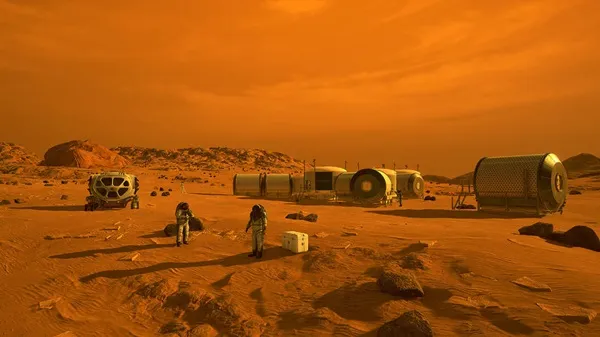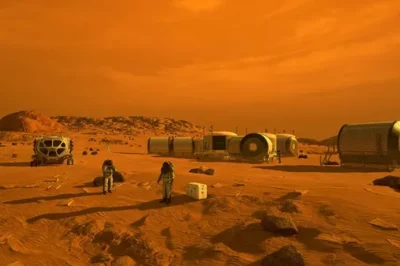
In an intriguing revelation, Dirk Schulze-Makuch, an astrobiology professor at the Technical University Berlin, suggests that we might have encountered life on Mars half a century ago, only to accidentally destroy it. This assertion casts a shadow over NASA’s Viking program of the mid-1970s, which marked humanity’s first attempts to directly search for life on the Martian surface.
The Viking landers, precursors to the modern Curiosity rover, undertook the monumental task of analyzing Martian soil for life signs. Schulze-Makuch highlights that these missions observed geological features and chlorinated organic compounds, initially dismissed as Earthly contamination, which we now recognize as indicators of Mars’s wetter, potentially life-supporting past.
The crux of Schulze-Makuch’s argument lies in the Viking experiments that added water mixed with nutrients to Martian soil samples. The idea was simple: if Martian microbes existed, they would metabolize these nutrients, releasing detectable radioactive carbon gas. While initial tests seemed promising, subsequent analyses offered no clear evidence, leaving the scientific community in limbo.
Schulze-Makuch proposes that this well-intentioned intervention may have been too drastic for the putative Martian microbes, akin to overwhelming a desert wanderer by placing them in the middle of the ocean. This analogy poignantly illustrates the potential misstep in our approach to discovering extraterrestrial life.
Reflecting on this historical moment, Schulze-Makuch advocates for a dedicated mission to Mars with a primary focus on life detection. Such a mission would not only seek to validate the hypothesis raised by the Viking experiments but also ensure we approach the search for life with the nuanced understanding it demands.
This call to action serves as a reminder of our responsibility in exploring other worlds. As we advance technologically, our methods must also evolve, informed by the lessons of the past and guided by a commitment to do no harm. In the quest to uncover the mysteries of our universe, let us tread carefully, respecting the delicate balance of environments beyond our own.








































Leave a Reply